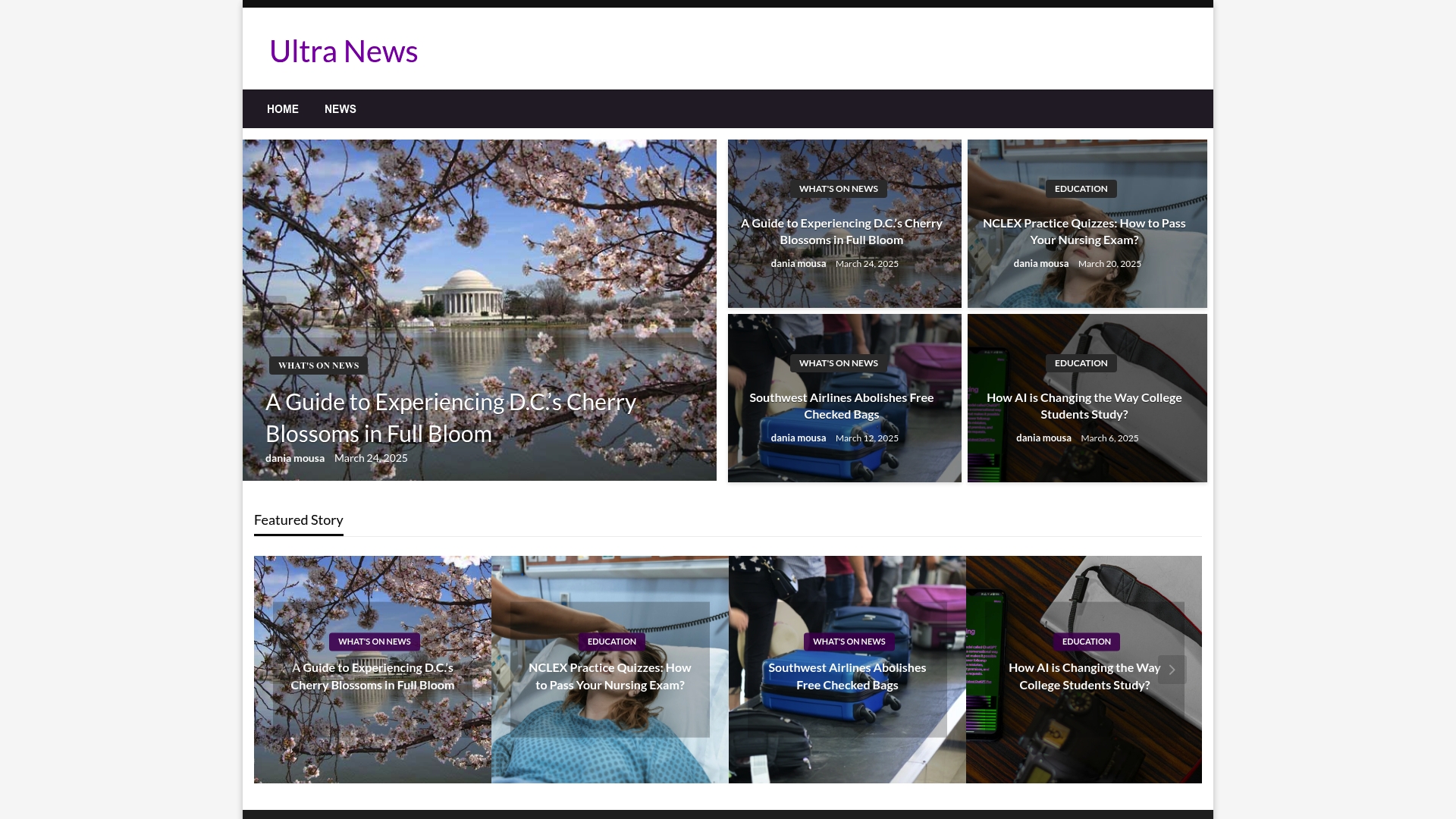
Time management can make or break a student’s success. Research shows students with strong time management skills report up to 50 percent lower stress levels compared to their peers. Most people think it is just about scheduling your day, but the impact is way deeper. The real secret sits in how mastering this one skill lifts mental health, boosts confidence, and changes the whole college experience.
Quick Summary
| Takeaway | Explanation |
|---|---|
| Effective time management reduces academic stress. | Organizing tasks helps students manage their workload, alleviating anxiety and improving their performance. |
| Prioritize tasks to enhance productivity. | Identifying urgent versus important tasks allows for better resource allocation and goal achievement. |
| Implement flexible planning strategies. | Adaptable plans help students adjust to changing circumstances without losing focus or productivity. |
| Avoid digital distractions to remain focused. | Recognizing and mitigating interruptions from technology can improve concentration and enhance study effectiveness. |
| Time management skills are crucial for career readiness. | Employers value strong organizational skills, making effective time management a key factor in professional success. |
What is Time Management and Why is it Important for Students?
Time management represents a strategic approach to organizing and controlling how students allocate their time across academic and personal responsibilities. Time management for students involves deliberately planning, prioritizing, and executing tasks to maximize productivity while minimizing stress and potential burnout.
Understanding the Core Concept
At its fundamental level, time management is about making conscious choices about how to spend limited time resources. For students, this means creating a structured framework that allows them to balance academic requirements, personal commitments, extracurricular activities, and essential self-care.
According to Stanford University’s Student Affairs Research, effective time management helps students:
- Reduce academic stress
- Improve overall academic performance
- Develop critical organizational skills
- Create sustainable personal and professional habits
The Critical Impact on Student Success
Time management transcends mere scheduling. It is a comprehensive skill that empowers students to take control of their educational journey. When students learn to manage their time effectively, they transform potential chaos into structured progress. Explore our guide on best study habits to complement your time management strategies.
By understanding and implementing strategic time management techniques, students can significantly enhance their academic performance, reduce anxiety, and create a more balanced lifestyle. The ability to prioritize tasks, set realistic goals, and maintain a consistent workflow becomes a powerful tool for academic and personal success.
The Psychological Benefits of Effective Time Management
Time management is more than a productivity strategy. It is a profound psychological tool that significantly impacts mental health, emotional well-being, and personal development for students. Understanding the psychological mechanisms behind time management reveals its transformative potential in reducing stress and enhancing overall life satisfaction.
Mental Health and Stress Reduction
According to research from the National Institutes of Health, effective time management directly correlates with reduced psychological stress. Students who implement structured time management techniques experience substantial mental health benefits:
- Decreased anxiety levels
- Improved emotional regulation
- Enhanced sense of personal control
- Reduced feelings of overwhelm
Cognitive Performance and Emotional Resilience
Time management acts as a cognitive framework that helps students develop emotional resilience. By creating predictable structures and realistic expectations, students can minimize uncertainty and anticipatory stress. Learn techniques to boost your concentration that complement effective time management strategies.
Moreover, the psychological benefits extend beyond immediate stress reduction. Consistent time management practices help students build self-efficacy, a critical psychological construct where individuals believe in their capacity to accomplish goals and navigate challenges. This sense of personal competence becomes a powerful psychological resource, enabling students to approach academic and personal challenges with confidence and strategic thinking.
The following table outlines key psychological benefits students experience from effective time management, making it easier to understand the mental and emotional impact explained in the article.
| Psychological Benefit | Explanation |
|---|---|
| Reduced Anxiety | Lowers feelings of stress by organizing tasks effectively |
| Improved Emotional Regulation | Fosters better control over emotions through structured planning |
| Greater Sense of Control | Increases confidence by creating predictability and stability |
| Enhanced Self-Efficacy | Builds belief in one’s ability to achieve goals |
| Decreased Overwhelm | Minimizes feelings of being overloaded with academic demands |

Key Principles of Time Management in Academic Life
Time management in academic settings requires a strategic and systematic approach that goes beyond simple scheduling. Effective time management is a complex skill that integrates personal discipline, cognitive strategies, and adaptive planning techniques specifically tailored to the unique challenges of student life.
Prioritization and Goal Setting
According to Princeton University’s McGraw Center for Teaching and Learning, successful time management begins with clear prioritization and realistic goal setting. Students must develop the ability to distinguish between urgent and important tasks, creating a hierarchical framework for task completion.

Key aspects of effective prioritization include:
- Identifying critical academic deadlines
- Assessing task complexity and required effort
- Creating realistic and measurable objectives
- Allocating appropriate time and resources
Adaptive Planning and Flexibility
Time management is not about rigid adherence to schedules but about creating flexible frameworks that accommodate unexpected challenges. Learn smart study strategies that complement adaptive time management approaches.
Successful students recognize that plans must remain dynamic. This means regularly reassessing priorities, adjusting timelines, and developing contingency strategies when original plans become impractical. The ability to pivot without becoming overwhelmed is a critical skill in academic time management, allowing students to maintain productivity even when faced with complex or changing circumstances.
Common Challenges Students Face in Managing Time
Time management challenges are complex psychological and behavioral obstacles that can significantly impede academic progress and personal development. Understanding these challenges is crucial for students seeking to develop effective strategies for navigating their educational journey.
Digital Distractions and Procrastination
According to research on student behavioral patterns, digital technologies present unprecedented challenges to student time management. The constant stream of notifications, social media, and digital entertainment creates significant barriers to focused academic work.
Primary digital disruption challenges include:
- Constant smartphone interruptions
- Social media scrolling
- Streaming platform binge-watching
- Multitasking across digital platforms
Overcommitment and Unrealistic Expectations
Students frequently struggle with balancing academic responsibilities, extracurricular activities, social commitments, and personal development. Learn strategies to improve study concentration to help manage these complex demands.
Overcommitment manifests through symptoms like chronic stress, incomplete tasks, reduced sleep quality, and diminished academic performance. Recognizing personal limitations and developing strategic prioritization becomes essential in managing these challenges effectively.
Below is a table summarizing the major challenges students face in managing their time and the underlying consequences as discussed in the article.
| Challenge | Description | Common Consequences |
|---|---|---|
| Digital Distractions | Disruptions from smartphones, social media, and online platforms | Reduced focus, procrastination |
| Procrastination | Delaying important academic tasks and decisions | Incomplete work, increased stress |
| Overcommitment | Balancing too many academic and extracurricular activities | Burnout, poor academic performance |
| Unrealistic Expectations | Setting unachievable goals or taking on excessive workloads | Chronic stress, low motivation |
| Difficulty in Prioritizing Tasks | Inability to distinguish between urgent and important responsibilities | Missed deadlines, overwhelm |
Real-World Applications of Time Management Skills
Time management skills extend far beyond academic settings, transforming into critical life competencies that influence professional success, personal relationships, and overall individual performance. Understanding how these skills translate into practical scenarios empowers students to develop comprehensive strategies for long-term achievement.
Professional Development and Career Readiness
According to Harvard Summer School’s professional guidance, effective time management represents a foundational skill set that employers actively seek in potential candidates. Students who demonstrate strong organizational capabilities significantly enhance their employability and career trajectory.
Key professional applications include:
- Creating structured project timelines
- Managing multiple concurrent responsibilities
- Delivering consistent high-quality work
- Meeting critical deadlines consistently
Personal Life Integration
Explore techniques to improve concentration that complement broader time management strategies. Time management transcends professional contexts, profoundly impacting personal well-being and interpersonal relationships. By developing disciplined scheduling and prioritization skills, individuals can create balanced lifestyles that accommodate professional obligations, personal interests, social connections, and self-care activities.
Successful time management enables individuals to allocate appropriate energy and attention across various life domains, preventing burnout and promoting holistic personal development. The ability to strategically manage time becomes a transformative skill that supports psychological resilience, reduces stress, and creates opportunities for meaningful personal and professional growth.
Ready to Transform Your Academic Routine with Practical Time Management?
If distractions and stress are holding you back from reaching your full potential as a student, you are not alone. This guide on understanding time management for students reveals how challenging it can be to balance deadlines, avoid digital distractions, and fight off procrastination. Imagine what you could achieve if you mastered prioritization and reduced overwhelm for good. See how real students develop confidence and focus by using proven strategies that actually work. Visit Ultra News for even more expert-written tips and resources designed to help you make every study session count.

Take control of your academic journey today. Browse our best study habits and smart study strategies guides. Do not let stress win. Find the personalized advice and educational content you need right now at Ultra News.
Frequently Asked Questions
What is time management for students?
Time management for students is the strategic approach to organizing and controlling how students allocate their time across academic and personal responsibilities. It involves planning, prioritizing, and executing tasks effectively to maximize productivity while minimizing stress.
Why is time management important for students?
Effective time management helps students reduce academic stress, improve academic performance, develop critical organizational skills, and create sustainable personal and professional habits.
How can students improve their time management skills?
Students can improve their time management skills by setting clear priorities, establishing realistic goals, creating adaptive plans, and minimizing digital distractions to enhance focus on academic tasks.
What are common challenges students face with time management?
Common challenges include digital distractions like social media and smartphones, overcommitment to activities, unrealistic expectations, chronic stress, and difficulties in prioritizing tasks effectively.




